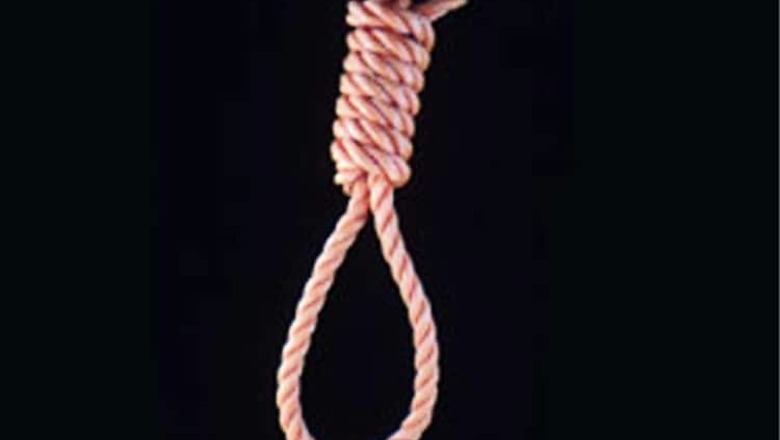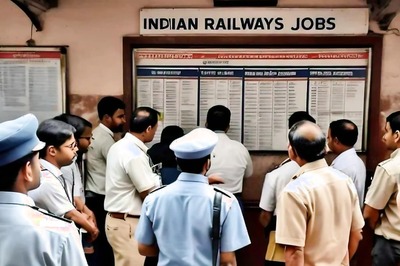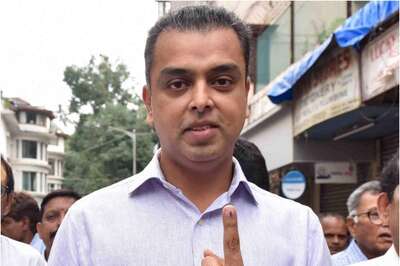
views
1993 Mumbai blasts convict Yakub Memon's hanging has yet again ignited the debate over the need for death penalty. From political leaders to the common man, people are divided on whether the Death penalty acts as a deterrent for the others.
Congress leader Shashi Tharoor on Thursday tweeted that he is saddened by the news that the government has hanged a human being. While he added that he was not commenting on the merits of a specific case, like Memon’s, he said that he is against the concept of death sentence.
United Nations Secretary General Ban Ki-moon has taken note of the Memon's death while emphasising that he stands against the death penalty. "We have taken note of what happened. The Secretary General stands against the death penalty and the case remains the same," Ban's spokesperson said.
Ban has in the past maintained that the death penalty "has no place in the 21st century" and has repeatedly called on nations to take concrete steps towards abolishing or no longer practising the form of punishment. He has described the death penalty as a "cruel and inhumane" practice.
A leading human rights organisation Human Rights Watch (HRW) has also renewed its call for India to abolish the death penalty, saying there is no evidence from India to show that the "cruel, inhumane" form of punishment acts as a deterrent.
Speaking for the need of abolishing death penalty, CPM leader Sitaram Yechury said that India should join other nations and scrap the death penalty.
Another CPM leader Brinda Karat, too, backed the abolition of death penalty. "Ït is unfair that politics decides who lives and who dies. Double standards are applied in deciding death and clemency," she claimed.
Several activists had gathered at Jantar Mantar to oppose Memon's death sentence while the Supreme Court bench was arguing whether the 1993 Mumbai blasts convict should be hanged.
Attorney General Mukul Rohatgi, who had opposed Memon's plea in the apex court said that capital punishment cannot be done away with due to prevalent terror strikes. "I think in the present scenario, with terror attacks every second day, it is not appropriate to do away with death penalty. Death penalty is valid under Indian law and if you look at the number of executions in the last 10 years, you can literally count them on your fingers," he said.
Rohatgi, however, stressed on the need to expedite death penalty cases saying that the "deterrent effect of death penalties" has diluted due to the time taken in deciding such cases. "By the time death penalty is awarded, it is usually 15-20 years and it takes several years by the time death penalty is actually executed. We must speed up the process in death cases," he said.
Claiming that the decision to execute Memon was right, Bharatiya Janata Party (BJP) leader Shahnawaz Hussain said, "what was the fault of those people who died in the Mumbai blasts? Law ensures that guilty are punished and innocent don't."
Memon was hanged early on Thursday morning on his 53rd birthday after he exhausted all legal options to appeal his conviction.
In an unprecedented move, India's Supreme Court heard his last-minute appeal in a special hearing held in the middle of the night just hours before his scheduled hanging.
According to the data by Amnesty International, 100 countries (51%) have abolished death penalty so far, seven countries (4%) have retained it for crimes committed in exceptional circumstances, 48 countries (25%) permit its use for ordinary crimes, but have not used it for at least 10 years. 40 countries (21%) have retained it both law and practice.
In the past 10 years, India has executed 4 people. In 2004, Dhananjoy Chatterjee was hanged in West Bengal for raping and murdering a teenager. In 2012: Ajmal Kasab was hanged in Pune's Yerwada jail for his role in the 26/11 terror attacks. In 2013, Afzal Guru, a convict in the 2001 Parliament attack was hanged in Delhi's Tihar jail. In 2015, Yakub Memon was hanged in Nagpur jail for role in 1993 Mumbai blasts case.
















Comments
0 comment